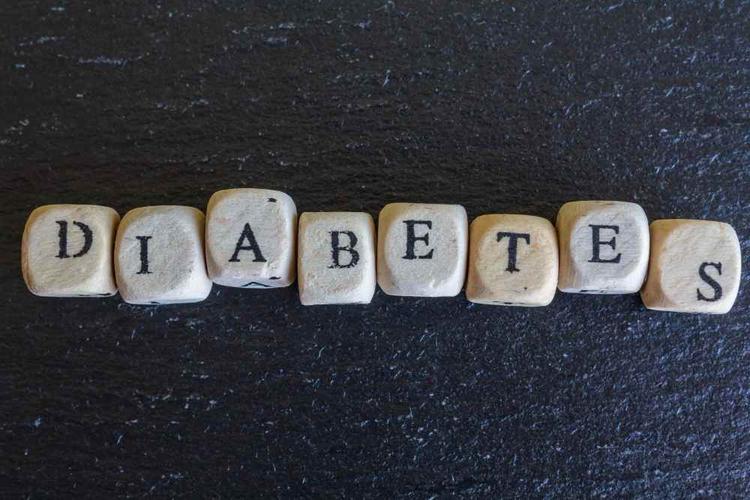Unveiling the Link Between Belly Fat and Diabetes: A Closer Look

Medically Reviewed By
Dr. Ragiinii Sharma
Written By Meenakshi
on Aug 9, 2023
Last Edit Made By Meenakshi
on Mar 15, 2024

Are you obese? Do you have excess belly fat? Do you know being overweight increases your risk of diabetes? Don't be shocked! As per the National Institute of Health, obesity is the leading factor for higher risk of Type 2 Diabetes. Obesity and diabetes are two different diseases but are interconnected with one another. In this blog, let's delve into the information and discover how excess belly fat significantly impacts the risk of developing diabetes.
Belly Fat – What's the dilemma?
In simple words, belly fat is the type of fat that accumulates around the abdomen and is mainly of two types:
- Visceral Fat: It is the fat accumulated around abdominal organs, including the stomach, liver, or intestines. Having it at an appropriate level is fine to keep organs protected, but too much of it can cause a threat to health. Also called active fat, visceral fat can lead to various health issues, like diabetes, cardiovascular disease, or stroke.
- Subcutaneous Fat: Being made of three layers, this type of fat sits under your skin. It is the deepest layer of skin that pads muscles and bones to protect against falls, help blood vessels and nerves, control body temperature, and serve more purposes. While it protects your body and serves many purposes, too much of it indicates the presence of visceral fat, which can cause health problems.
The Connection With Diabetes:
From the above, it is very clear that Visceral Fat contributes to the high risk of diabetes, type 2 diabetes in general. Type 2 diabetes is the most common form of diabetes that develops when cells become resistant to insulin, a critical hormone responsible for regulating blood sugar. Some studies have found that obesity and type 2 diabetes are interconnected; find out how:
- Adipokines: Excess Adipose tissues can be found in individuals with obesity. It releases Adipokines and acts as classic hormones affecting the metabolism, glucose regulation and contributes to diabetes development.
- Inflammation: Belly fat can trigger low-grade inflammation, leading to insulin resistance and high diabetes risk.
- Free Fatty Acids: Moreover, Visceral Fat releases excessive free fatty acids, accumulating in the liver & muscles, impairing insulin sensitivity & increasing the risk for diabetes.
So, all in all, belly fat is not good for your health and is a major contributor to a high risk of diabetes. Now the question is, what causes belly fat? Let's find out:
Causes Of Belly Fat:
- Unhealthy Diet: Your diet can make or break your body and health. Poor dietary choices slow the metabolism, reduce the body's ability to burn fat, and cause unnecessary weight gain.
What to do:
- Eat whole foods
- Cut back on processed foods
- Make fiber & lean protein your friend
- Consume less refined carbohydrates and saturated fat
Summary: There is an adage you become what you eat, so healthy to keep your body weight balanced and reduce your risk of developing diabetes. You can consult your healthcare practitioner for a personalized diet plan according to your body & health requirements.
- Excessive Alcohol Consumption: Apart from your diet, the habit of drinking is another factor that contributes to obesity, liver disease, inflammation, and other chronic illnesses.
What to do:
- Try to quit
- Drink in moderation
- Replace your drinks with healthy beverages
Summary: Cutting back on alcohol consumption is critical to control unnecessary weight gain, which in one or other way contributes to diabetes, cardiovascular problems, and other health issues.
- Chronic Stress: Stress is your health's biggest enemy, and we couldn't agree more. While in today's lifestyle, it cannot be permanently removed but can be managed well. In one way, this stress can influence your normal metabolism function, leading to excess body weight and a high risk of diabetes.
What to do:
- Stress less
- Try meditation or yoga
- Indulge stress management practice
Summary: Don't let unnecessary stress cause you excessive weight gain. Managing it in time is critical to balance weight and minimizing your risk of several related health conditions, like diabetes, hypertension, cardiovascular problems, and more.
- Lack of Exercise: Exercise is the key to burn extra calories from your body. Leading an inactive lifestyle makes it hard to eliminate those extra calories, resulting in excess body fat or body weight, particularly around the abdomen.
What to do:
- Incorporate light to moderate exercise in your routine
- Walk for at least 30-40 minutes a day
Summary: Besides helping you be physically active, this may help you reduce body fat and your risk of diabetes and other chronic conditions.
- Poor Sleep Cycle: Yes, you read that right. A factor as small as your sleep can also contribute to obesity. A disturbed sleep cycle is potentially linked with emotional eating, stress, and other problem, leading to weight gain.
What to do:
- Take 7-8 hours of sleep daily
- Sleep in the correct posture for a better quality of sleep
- Avoid phone 30 minutes before the sleep
Summary: You can be healthy by simply correcting your sleep cycle. So, what are you waiting for? Sleep tight and stay fit.
The cause could vary, but how you manage it matters. With simple lifestyle modifications and healthy habits, managing your weight and reducing your risk for certain health conditions is easier.
Routine Screening Can Help Manage Weight & Health
Apart from lifestyle modification, one thing that works wonders is routine health screening. Getting yourself tested timely help you keep track of your health, detect potential health issues before things turn ugly, and give you time to take preventive measures to manage the condition better. Redcliffe Labs is your trusted diagnostic partner for routine health checkups to specialized tests. Whether you want to book a Full Body Checkup or Diabetes Screening Package, Redcliffe Labs is the name to recall. So, delay no more and book a test to avoid health hurdles.
Conclusion:
The connection between belly fat and diabetes cannot be overlooked. Understanding the link allows us to be proactive, make healthy choices, and reduce our risk of developing type 2 diabetes. Remember, managing belly fat isn't just about aesthetics – it's a crucial step toward maintaining overall health and preventing the onset of diabetes. So, shed those extra pounds to stay away from health problems.



